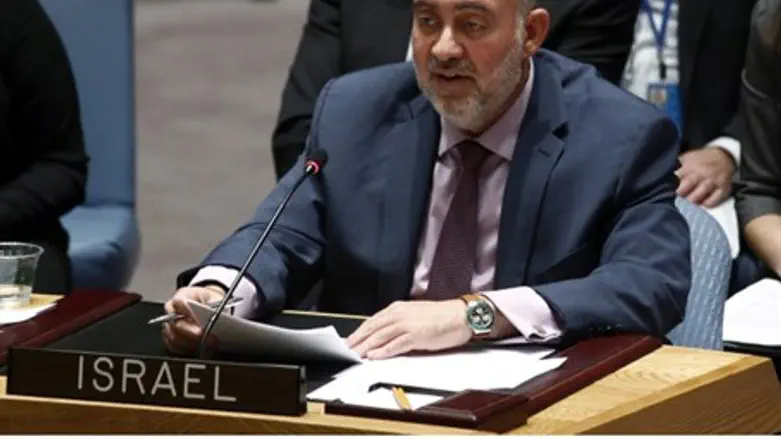
Israeli Ambassador to the United Nations (UN) Ron Prosor on Thursday night spoke at a UN Security Council emergency session initiated by America, the current Security Council chair, in which he promised Israeli aid in combating the global ebola epidemic.
"Israel is ready for the new challenge standing before the world, and has started providing funds and medical equipment," said Prosor. He noted that the Jewish state has sent "Israeli health experts to Cameroon."
"A world crisis demands an international response. Every country has a role in the struggle against ebola," commented Prosor. "The whole world must replace apathy with initiative and finding solutions."
Israel has recently had two false alarms of ebola scares in Jerusalem and the Tel Aviv suburb of Kfar Saba, both of which were quickly ruled out.
The global epidemic has so far claimed the lives of at least 2,600 people in the western African states of Guinea, Liberia and Sierra Leone since the first case in last December.
In response to the crisis, Sierra Leone on Friday is starting a three-day nationwide lockdown, during which no one will be allowed to leave their homes as volunteers go around instructing locals how to defend themselves against the lethal virus, reports CNN.
"We believe this is the best way for now to identify those who are sick and remove them from those who are well," said Sierra Leone Information Minister Alhaji Alpha Kanu.
However, the Doctors Without Borders organization warned the move does not have a good chance of checking the spread of the fatal disease.
"Forced quarantines and lockdowns are driving people underground and jeopardizing the trust between people and health providers," the group said this month. "This is leading to the concealment of cases and is pushing the sick away from health systems."
That tension was highlighted this week as eight officials and journalists were murdered in a remote Guinea village.
The delegation arrived Tuesday to raise ebola awareness in the town, only to be met by a rock throwing mob that attacked them on claims they had come to spread the disease.
The tropical virus can fell its victims within days, causing severe fever and muscle pain, weakness, vomiting and diarrhea - in some cases shutting down organs and causing unstoppable bleeding. The mortality rate from the disease is 51%.
No widely available vaccine or treatment exists but health experts are looking at fast-tracking two potential vaccines and eight treatments, including the drug ZMapp.